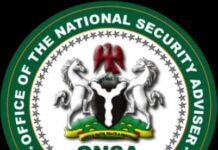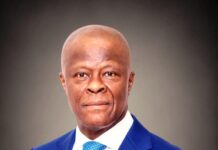By Abu, I. Michael
From available financial analyses, we have seen the quanta of monies spent to scale up countries’ financial bases by governments in efforts to alleviate poverty and improve fortunes for their peoples. There is no doubt the fact that achievements have truly been made by many of the countries especially those enjoying the appellation of ‘developed countries’ based on the indices of development provided by Bretton Woods institutions, the World Bank and the International Monetary Fund (IMF). There is no doubt so far, that from circumstantial indications governments of many political states, Nigeria also counted, are genuinely committed towards the development of their socioeconomic sectors and the countries in general. However, many peoples of the world are impoverished and suffering because of poor or weak economic substructures are largely responsible for their being underdeveloped or developing whilst their leaders grubbing for the magic wands that will help turn things around for the general good.
On various strata and contexts of domestic, regional and international discourses, analysts and experts in Economic Planning and Development have been attempting to provide answers and in some cases recommendations to such questions of what could be responsible for the state of underdevelopment with the unpleasant menu it serves the citizenries of countries? Why the huge amount of monies spent every now and then to fast-track development do not yield expected results? Why there have been no value additions in the genuine efforts being made to take peoples off economic forbidden zone? One can go on and on to raise more questions.
For donkeys of years, leaders of many countries have neglected the place of geospatial data/information in economic and development planning. It has widely been accepted that geospatial data/information remain integral in every planning and decision-making for national development and expansion of especially physical infrastructure. Cartographers have asserted that the most developed countries in the world are the well mapped ones; maps are also products of geospatial data or information. Maps are representations and if you like, models for ease of analysis, decision, planning and action. In fact, the United Nations has posited that the achievement of the 17 Sustainable Development Goals (SDGs) and indeed general development would hardly be realized without geospatial inputs. It has also gone ahead to develop an Integrated Geospatial Information Framework (IGIF) beckoning countries to do a country-level frame for their planning and development.
Often, we are hardly conscious of the fact that every human endeavour or activity occurs in a place – on land, water, sky or interplanetary; every single position in these places according to surveyors and related professionals has its unique behavior, specific space and address – these must be understood. Generally, we need vital information (geospatial) to execute projects spanning whatever types of construction and installation for any meaningful especially physical accomplishments. The significance of geospatial data/information is inherent aptly in the development of Evidence-Based Support System (EBSS) that helps or supports effective decision-making in governance and in execution of projects of physical development as well as other critical dimensions of the environment.
To be honest, the ‘new normal’ has dealt a big blow on the economy, frustrating all the developmental efforts of the government, and the challenges confronting it are more than triple; worst of all is the recession staring the country in the face. As typical of a responsible government, the Federal Government of Nigeria (FGN) through the Minister of State for Budget and National Planning, Clem Agba has hinted that the country may relapse into another recession except critical steps are taken towards the improvement of our Gross Domestic Product (GDP). Despite the awful situation of the novel virus, COVID-19 the FGN has increase spending to address critical areas of the economy amidst the battle to recover human security and public health. It has also continued to invest huge amount of monies to build sustainable economy, through deliberate efforts to achieving food security, creation of job opportunities, sufficient energy, expansion of transportation and infrastructure. The entire world is heading towards geospatial knowledge; geospatial information is the new tune for genuine development, Nigeria must embrace wholeheartedly for her to progress meaningfully.
It is with no less of attention to the import of geospatial data/ information that informed the decision of the Office of the Surveyor General of the Federation of theming this year’s Survey Coordination and meeting of the Advisory Board on Survey Training in Nigeria as “Geospatial Information: Achievements of SDGs and Good Governance.” Discussants and participants though through Zoom Webinar (virtual) would help to provoke thoughts and deep reflections on this new world tune for genuine development.
Since the United Nations has been in the forefront of promoting the relevance of geospatial inputs for economic planning and national development, its Representative and National Coordinator of the UN System in Nigeria, His Excellency, Edward Kallon has been nominated as the Special Guest Speaker at the conference already scheduled for September 2020.
The Minister of Works and Housing, His Excellency Babatunde Raji Fashola, SAN who is responsible for the development of critical infrastructure has been a surveyor’s delight. His antecedent as Governor of Lagos State speaks volume of his deep understanding and the relevance of geospatial data/information in the planning and physical development. He would be serving as the Chief Host of the conference where more than 1,000 surveyors and other professionals from various institutions and organizations would input on how best to grow our economy with the use of geospatial technologies.
Another interesting angle to this is the person of the Senate President of the Federal Republic of Nigeria, Distinguished Senator Ahmad Lawn, PhD, CON who would be serving as the Special Guest of Honour. The terrain is not new to him because of his background in Geography, Land Surveying and Remote-Sensing. As the number three man in the country’s political hierarchy, the surveying community would be expecting him to champion this cause that would fast-track socioeconomic development of the country.
Michael is the Head of Press and Public Relations, OSGoF






